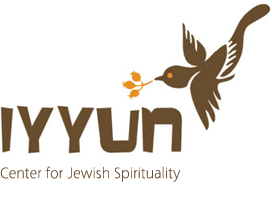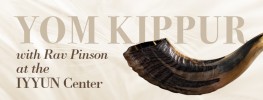To Remind or Relive?
In the perception of events from the past, there is “remembering” and there is “reliving”. It is generally assumed that the holiday of Passover is all about remembering the exodus from Egypt, yet this assumption is not altogether correct. Passover is more about reliving than remembering. An event remembered is not necessarily an event relived. By merely relegating an occurrence in history to memory, one can remain indifferent and unattached to that occasion. History can easily be read as ‘his-story,’ not at all relating to one’s own personal life experience. We are told to remember the exodus as our-story. We envision ourselves as slaves freed from the tyranny of Egypt. This is not merely a memory, but rather a meta-historical life lesson. Passover is the event in the course of our story in which we were given the power to transform ourselves from the modality of slave to that of free being.
Slaves to Fear(oh)/ph(e)aroh
The nature of slavery is to exist in a constant condition of fear. In fact, slavery requires a state of dread to flourish. The apprehension of being refused one’s basic needs, be it food, shelter, or the dread of physical beatings and emotional abuse. The greater the fear imposed on the slave the more efficiently he will perform.
Let us explore this phenomena of fear. What is fear if not merely an extension of one’s ego. It is the ambience in which the ego thrives. The definition of ‘ego’ being that ‘self’ which seeks survival. It is that which accumulates schemes and discards trust out of its fear of annihilation. Fear is the method through which the ego warns the body that an impending force attempts to annihilate its existence. In the extreme situation, one fears complete extinction of the ego, death itself, and more commonly one may fear acting in such a way that he would appear foolish, thereby merely bruising the ego. Essentially, fear is a function of the ego.
Let My People Grow!
Confronting ego is an arduous task; warring against it provides more energy towards its existence. The more one resists, the more it persists. Drive it into hiding, and it will simply act surreptitiously.
The question thus remains, how does one rid oneself of fear? More to the point, how does one transcend ego? The answer may be found in that which is the antithesis of ego, the soul itself. Soul, being an indivisible part of G-d, is therefore egoless and transcendent. Through the revelation of soul, one consequently banishes ego, and fear.
Through the exodus of Egypt, entire new paradigms were brought into consciousness. The fearful slave was now free, the imprisoned soul was allowed to transcend and include the limitations of the body to experience and express itself in its entirety. Mitzrayim is derived from the word metzar–limitation or constriction. The redemption from Egypt represents the transcendence of limitation, the triumph of the souls expression of love over the ego’s projections of fear.
Consequently, the consumption of leavened bread is forbidden on the holiday of Passover. Leavening of dough represents the inflammation of ego. Rather than provide the ego with sustenance, we consume the matza, a flat, humble and ‘egoless’ food.
Shalom Bayit
The exodus from Egypt culminated in the union of G-d and the Jewish people through the giving of the Torah, often referred to as a marriage between G-d and man. The union of two individuals in marriage necessitates a relinquishment of one’s ego, thereby providing a space in which another individual may exist. Operating in a modality of fear or ego, one leaves no room for another, an essential component for a healthy and secure union.
Upon leaving Egypt, the Jews were freed from their state of fear. In this condition of fear, their preoccupation with their own survival left little room for a healthy love to flourish. In their newly freed state, they were now able to focus beyond their immediate selves and were open to a new and fulfilling relationship. For forty nine days they eagerly anticipated the momentous occasion of the union between themselves and their Creator, the ultimate partner. On this day they would unite with their beloved, in a state of true love
G-d’s gift of the Torah is an expression of the highest love imaginable. Within the Torah, G-d revealed Himself and His innermost desires and showed us the way to love and come ever closer. Where fear once predominated, there became a universe permeated by love, inspired by the most positive, life affirming partner/power, G-d Himself.
The relationship of a slave and a master is built on a divide, you- the slave, or He- the master. It is G-d who is above, contra to man who is below. In this new arena following Matan Torah, the relationship is housed in love, whence the reality is not you “or” He, but rather, you “and” He, collaboratively working as co-creators in making this world a better place.







